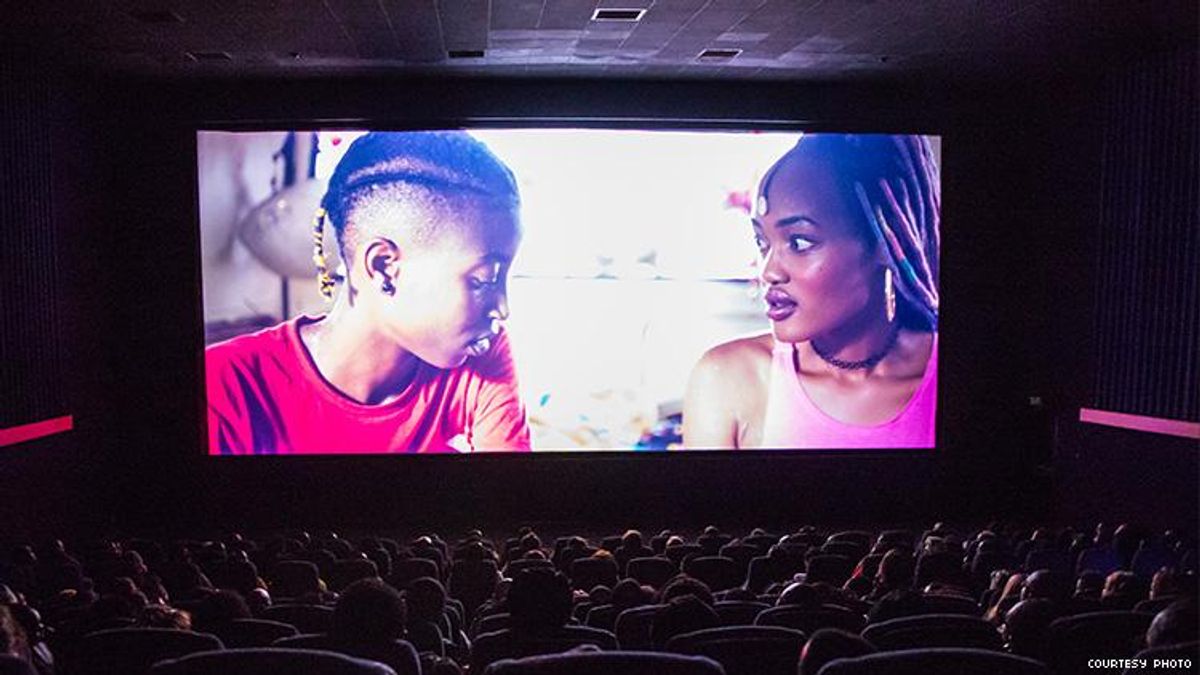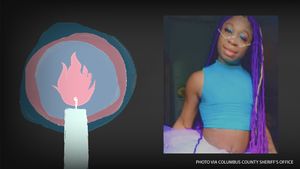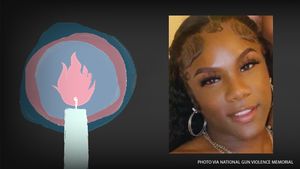Rafiki was the top performing film in Kenya for the week it was unbanned ending Saturday, September 29th, beating Hollywood blockbusters such as The Nun and Night School.
In fact, Rafiki became the second highest-grossing Kenyan film of all time, even though it only had a seven day, court-authorized, theatrical run in three Kenyan cities. The film grossed more than $33,000 in the week. The film was temporarily unbanned in order to be eligible for an Oscar, more specifically, best foreign-language category. In order to be eligible, a film must be in theaters for no less than seven days.
"I am not convinced that Kenya is such a weak society that it cannot handle a gay theme. There are Kenyans who paid the ultimate price for the freedoms we enjoy today," said Judge Wilfrida Okwany, who handed down the ruling.
Over 6,500 people watched the film in Kenya on the big screen over the seven day period which also saw hundreds of cinemagoers being turned away from venues due to full houses.
Rafiki's Kenyan distributor, Trushna Patel from Crimson Media said, "Over a seven day release, Rafiki has experienced a rush at Prestige Cinema only felt before at the Black Panther release earlier this year. Even though there was limited screen time allotted at the last minute after the court ruling, the film was performing to full house capacity at all shows running, a welcome scene for a Kenyan film."
Wanuri Kahiu, the film's director and writer said, "Thank you so much to all of you who came out and watched the film. Thank you for celebrating Kenyan film with us! We are so grateful. As we return to court to argue for freedom of expression, we carry you with us.''
Rafiki made history earlier this year as the first Kenyan film selected for the prestigious Cannes Film Festival and has gone onto screen at festivals around the world. In the month of October alone, it is screening in festivals in more than 20 countries. It is currently in cinemas across France and Belgium to be followed by theatrical releases in USA, Japan, Switzerland, Holland, Scandinavia, South Africa and has been invited to screen in at least six other African countries.
"The success of the theatrical release proves that there is a strong commercial market for Rafiki in Kenya. We intend to take this film to other African countries to continue to build the case that quality African films are commercially viable on our own continent. The film will be re-released in Kenya, when permanently unbanned,'' said Rafiki producer Steven Markovitz.
























































































